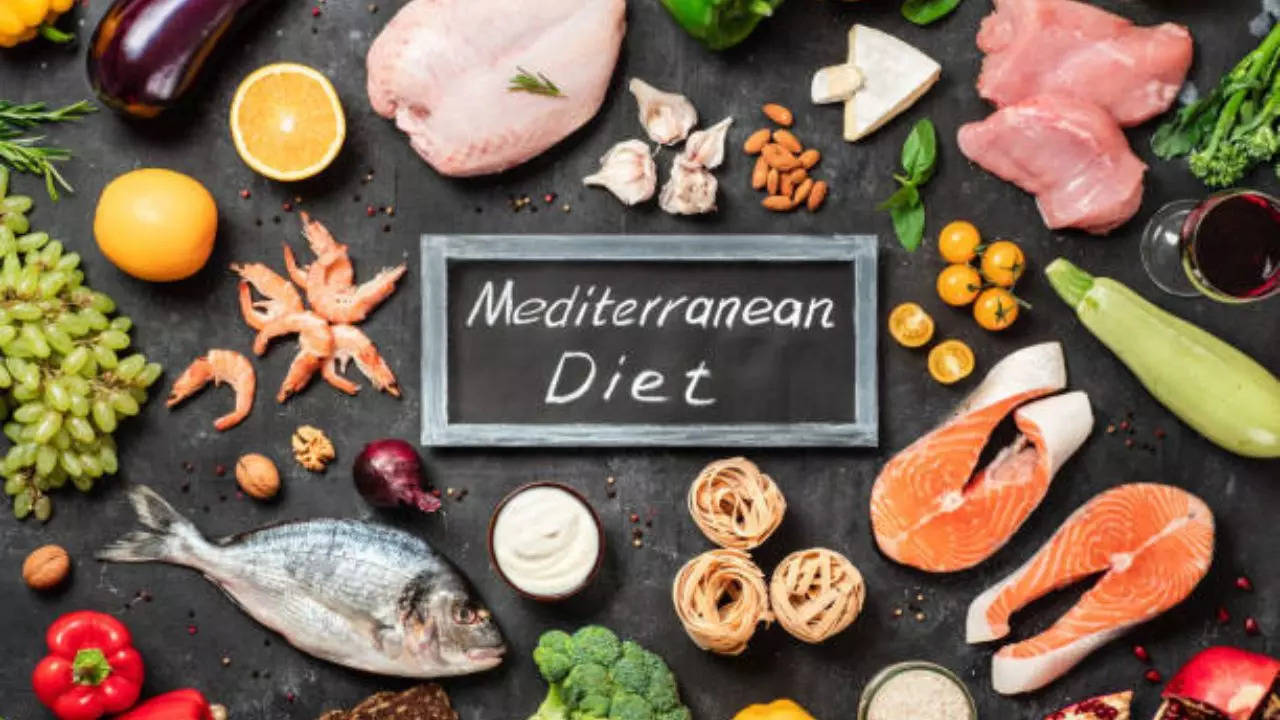Contents
What happens to your body when you eat a Mediterranean diet for 30 days?Benefits of eating A Mediterranean diet for a monthcontrolled sleepreduction in swellingReduce the risk of heart disease in womenReduces the risk of dementiapromotes mental healthHow to start a Mediterranean diet?,BreakfastBreakfastlunchBreakfastdinner
-
news
-
Health
-
Diet
What happens to your body when you eat a Mediterranean diet for 30 days?
The Mediterranean diet has been named number one by nutritionists around the world for six consecutive years. This includes consuming fresh fruits and vegetables, lean and plant-based proteins, and healthy fats. Following this for a month can bring a lot of changes in your body. Read on to know what these changes could be.

The Mediterranean way of eating your food not only prioritizes certain food groups but also ensures that you don’t stop eating anything completely
The Mediterranean diet is one of the most popular ways to increase protein in your body. According to nutritionists, despite its name, it is not actually a “diet” but rather a set of eating habits that follow a certain pattern.
The Mediterranean way of eating your food not only prioritizes certain food groups and recommends limiting others but also ensures that you never stop eating anything completely. Plus, there’s plenty of research that proves the health benefits of the Mediterranean diet. So, what happens when you follow this for 30 days, eating lots of fruits and vegetables, breads and other grains, legumes like beans and nuts, olive oil, dairy products, fish and eggs?
Benefits of eating A Mediterranean diet for a month
According to experts, people who eat Mediterranean foods for 30 days in a row will experience the following in their bodies:
controlled sleep
Experts say one of the best benefits you can get from the Mediterranean diet is controlling the hours and quality of your sleep. The findings show that the more a person follows this way of eating, the more likely he or she will be able to nap longer and better.
As the diet contains less processed foods and refined carbohydrates, and more fruits, vegetables, whole grains and lean meats such as fish — more nutrients like omega-3 fatty acids regulate your body’s production of melatonin, a hormone. Which is necessary for controlling sleep.
reduction in swelling
Following the Mediterranean diet even for a month can see significant improvements in reduction of inflammation which can protect against diseases like heart disease and various infections.
The more you eat plant-based foods, whole grains and healthy fats – this helps reduce inflammation in your body.
Reduce the risk of heart disease in women
Women who follow a Mediterranean diet have a lower risk of heart disease. According to experts, the incidence of stroke in women was also less.
By limiting saturated and trans fats, the diet reduces LDL or bad cholesterol, which causes plaque build-up in the arteries that causes heart attacks and strokes.
Reduces the risk of dementia
People who regularly follow the Mediterranean style of eating have a lower risk of dementia. According to studies, consuming a diet rich in fruits, vegetables, whole grains and fish can protect your brain from cognitive decline. It helps promote brain health by reducing inflammation and oxidative stress and strengthens your metabolic health.
promotes mental health
In addition to taking care of your physical health, the Mediterranean diet also strengthens your mental health – reducing the risk of depression, stress and anxiety.
According to experts, eating fresh foods like fruits and vegetables gives you vitamins, minerals and fiber – all of which boost brain function. They also regulate blood pressure, which reduces anxiety and depression and improve your gut health, which can affect mood.
How to start a Mediterranean diet?,
Even though diet changes can be challenging, make sure to start small. According to nutritionists, you should start by choosing one meal and make it Mediterranean. A sample menu might look like this:
Breakfast
Yogurt with Fresh Fruits
Breakfast
handful of almonds or walnuts
lunch
Mixed green salad with chicken/cheese, vegetables and a dressing made of olive oil and lemon juice
Breakfast
Raw Vegetables with Hummus
dinner
Grilled chicken/fish/cheese/tofu with lemon, herbs and olive oil, roasted vegetables with quinoa or pasta
Get the latest news live on Times Now with breaking news and top headlines from around the world on diet, health and more.


